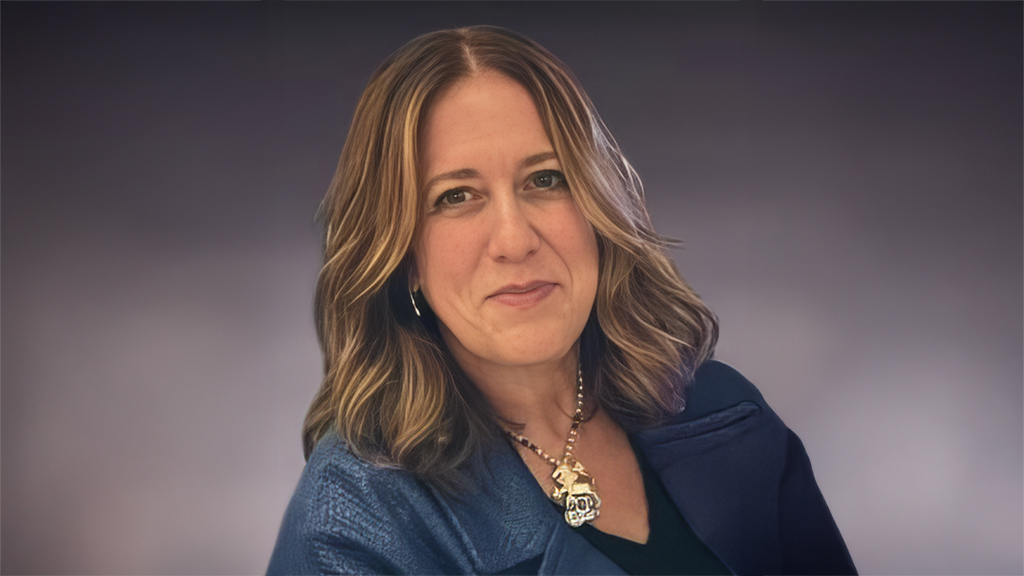Opinion
SURVEY SAYS
American Jews adopting American views is not necessarily bad news for Israel
In Short
The apparent contradiction of young Jews simultaneously supporting Israel while believing it commits genocide reflects a fundamental shift in how young Jews see Israel.
A recent survey by Israel’s Ministry of Diaspora Affairs reveals what appears to be a striking inconsistency: While 42% of American Jewish youth believe Israel is committing genocide in Gaza, and 37% express sympathy with Hamas, an overwhelming 94% still maintain an emotional connection to Israel. A separate survey by Boundless of Jewish young adults ages 18-40 found that 56% reported feeling more connected to Israel since Oct. 7.
This seemingly conflicting data points to a deeper, more complex reality about the relationship between American Jews and Israel.

Getty Images
For years, experts have warned about Israel losing its connection with younger American Jews, who have become increasingly liberal and critical of Israeli policies. Numerous reports have documented the widening political and value-based gaps between Israeli and American Jews, evolving into a genuine strategic threat. This younger generation, removed from Holocaust survivors and the Six-Day War and knowing only Netanyahu’s Israel, has struggled to identify with the contemporary Jewish State.
The Oct. 7 Hamas attacks and the subsequent surge in antisemitism were expected to strengthen ties between American Jewish youth and Israel. The reality is much more complicated.
What’s actually unfolding is that young American Jews find themselves caught between a rock and a hard place. On one side, they feel increased identification with Israel, with most young Jews reporting experiences of antisemitism in the past year. On the other side, they’re growing more critical of Israeli government policies and IDF actions, aligning themselves with liberal American youth. This internal contradiction is perfectly captured in the same Boundless survey, which found that while 67% of respondents feel a responsibility to support Israel, the same percentage believes Israel’s actions are making life harder for Jews around the world and conflicting with their moral, political and Jewish values.
Anti-Israel Jewish organizations like If Not Now (INN) and Jewish Voice for Peace hoped to capitalize on this moment, attempting to construct a new American Jewish narrative centered on progressive values rather than Israel. Despite seeing significant increases in donations and support, they haven’t achieved the massive membership surge they anticipated. While Students for Justice in Palestine has expanded from 206 chapters in 2022 to over 350 today, Jewish anti-Israel organizations haven’t achieved comparable growth. INN, for instance, which initially focused on opposing Israeli “apartheid” and occupation, gained some traction over the years through successful campaigns within the Jewish community. But their post-Oct. 7 decision to radicalize their rhetoric led many Jewish leaders to call for their exclusion from the Jewish communal tent. Their limited success stems from a fundamental challenge: Actively opposing Israel requires placing it at the center of one’s political identity — sometimes even more so than supporting it.
Most American Jews, while supporting Israel, are usually not single-issue voters. A September survey by the Jewish Democratic Council of America showed that even after a year of war in Gaza, Israel ranked near the bottom (9 out of 11) in American Jewish voters’ priorities, consistent with trends from recent years. Furthermore, recent months have seen a significant decline in public interest regarding the Palestinian cause, attributed partly to issue fatigue and Donald Trump’s victory. The anti-Israel faction has yet to penetrate mainstream politics or translate into substantial electoral success. Journalist Kevin Drum’s analysis of progressive positions’ popularity among Americans revealed that while most Americans support access to abortion and gun control, anti-Israel positions are the least popular among all progressive stances.
The apparent contradiction of young Jews simultaneously supporting Israel while believing it commits genocide reflects a fundamental shift in how young Jews see Israel. Israel is no longer seen as a young, vulnerable state surrounded by enemies, but as a regional power: still enjoying international support, capable of detonating beepers with a push of a button, taking out enemies in covert operations and conducting sophisticated military operations across multiple fronts. The genocide accusation often represents criticism of state actions rather than fundamental opposition to Israel’s existence — similar to how other global powers face criticism.
What we’re witnessing is American Jews’ views becoming more… American. While Jewish youth remain more supportive of Israel than their non-Jewish peers, they increasingly align with broader American liberal positions. When half of all Americans aged 18-29 believe Israel is committing genocide, similar beliefs among American Jews of the same age group reflect their American identity as much as their Jewish one.
The real concern isn’t that American Jews will become anti-Israel. It’s that many will simply disengage from Israel-related issues altogether.
As the conflict moved to a new stage with a fragile ceasefire in Lebanon and a potential hostage deal in Gaza, and domestic American issues take center stage with Trump’s inauguration in January, we can expect Israel to stop dominating the headlines. For many Jews, that will be a relief, and that’s precisely what we should worry about. Many American Jews might choose to distance themselves from Israel simply because it’s become too complex, too intense, and just too difficult to navigate.
So what can we do about it? A recent paper by the Atchalta Institute and the World Zionist Organization’s Department of Zionist Enterprises suggests adopting a broad, not open, tent approach — one that builds on broader Jewish values of solidarity and connection to Israel. They emphasize strengthening the shared destiny between Diaspora and Israeli Jews while prioritizing engaging progressive and more independent audiences, many of them feeling increasingly “politically homeless” since Oct. 7.
The path forward requires heavily investing in creating mass movements that capitalize on American Jews’ growing need for community and belonging. Currently, America has an abundance of leadership organizations but a severe shortage of grassroots initiatives. We need numbers, not leaders with no one to lead. And for numbers, we need Israel: According to almost every piece of research, traveling to Israel is still by far the most effective way to do that.
Paradoxically, strengthening independent American Jewish identity might be key to maintaining deep connections with Israel. The worst-case scenario isn’t opposition to Israel, but rather American Jews choosing to retain only their American identity. Only by fostering a sustainable Jewish identity that resonates with daily American life while fostering new ways to actively connect with Israel can we ensure that emotional connections to Israel remain a central component of American Jewish identity.
Barak Sella is a fellow at Harvard Kennedy School’s Belfer Center and the former executive director of the Reut Institute. He is an expert on US-Israel relations, Jewish Diaspora affairs and antisemitism.












